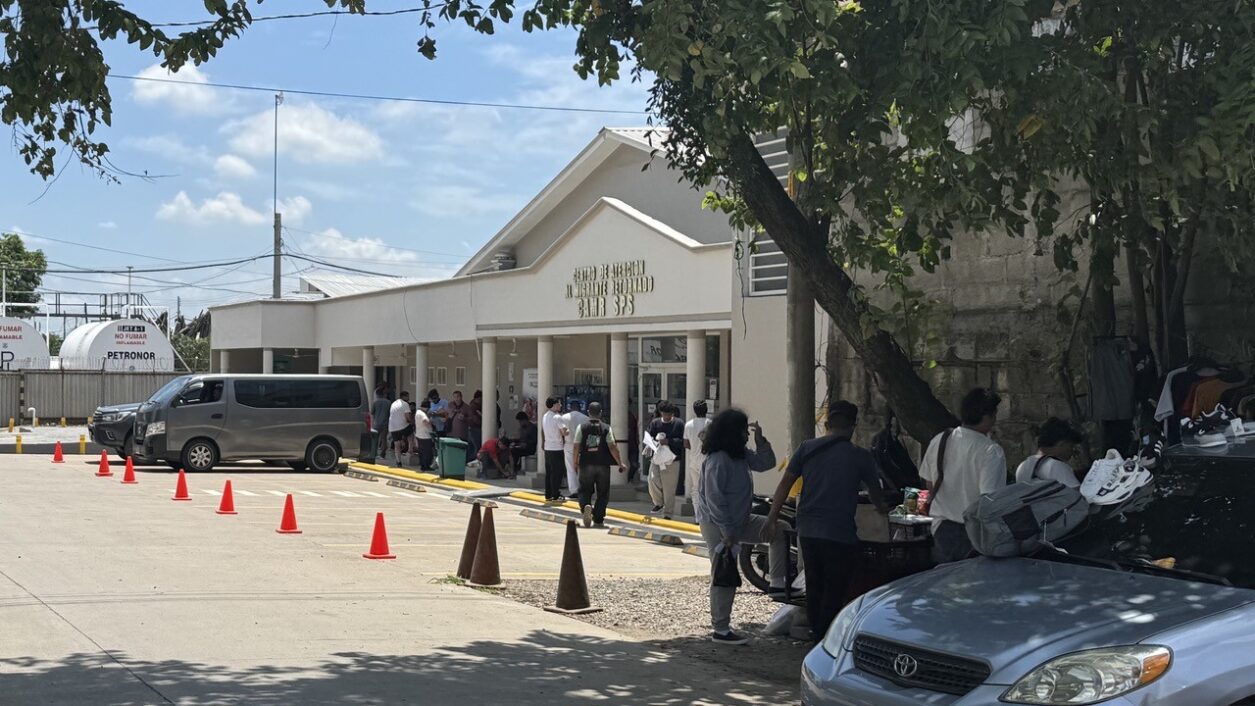Adam Isacson and Diana Flórez are researchers from WOLA and the Women’s Refugee Commission (WRC), respectively, investigating the impact of ICE deportations on people who have been deported to Honduras. They just visited San Pedro Sula, Honduras’s second-largest city. This is where Honduras receives its deported citizens aboard ICE contractor flights (and now some US military flights).
We spoke with people who provide services to help reintegrate the deported population, all of whom have had to cut staff and programs because of the Trump administration’s evisceration of USAID and State Department migration programming. We also spoke, briefly, to people who arrived on a deportation flight.
We came away alarmed. Here are four reasons why.
1. The extent of involuntary family separation is far greater than we expected.
In recent months, the number of Honduran parents who have been seized, detained, and deported without their US citizen children—even when they are willing to be removed with them—appears to total well into the hundreds, and new parents arrive every day.
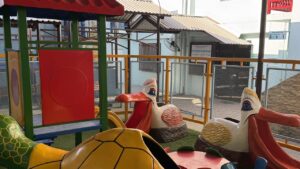
ICE has an affirmative obligation to allow parents to reunify with their children before they are deported or make alternative caregiving arrangements for them in the United States. On July 2nd, ICE issued a new version of the policy previously known as the “Parental Interests Directive.” The new guidance substantially weakens ICE’s obligation to help parents facilitate reunification with their children before removal, which raises grave concerns that these involuntary separations are going to increase.
However, even the policy states that parents “will be afforded an opportunity prior to their removal to elect (in writing) to have their dependent remain in the US and make alternative caregiving arrangements if necessary.” Numerous interviews so far have coincided in affirming that this is not happening.
In some cases, parents report to service providers that they are being removed without even getting a chance to communicate with their families at all. “They want to punish them for entering the United States, and they do it by targeting what they love the most—separating them from their families. It’s not a coincidence; it’s something that’s been well planned,” said a social worker who works with deported families.
Service providers spoke of these parents’ great anguish and mental health crises. “It’s a lie that they’re giving them the choice to bring kids back with them,” one told us. “Every day, women arrive crying, but what can we do? I don’t know how to help.”
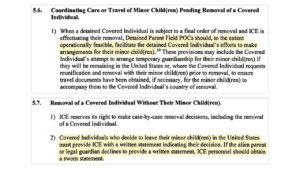
2. Inadequate care puts mothers and babies at risk.
An issue that caused frustration among service providers was the condition in which breastfeeding mothers, babies, and young children are returned. We repeatedly heard that the food provided is inadequate—often frozen meals, chips, and apples. Children arrive sick, with diarrhea, coughs, and signs of malnutrition. Hygiene is also a serious concern: They aren’t allowed to bathe for days, and mothers don’t receive enough diapers to change their babies regularly. In the days before deportation flights, access to food and water is extremely limited. When asked about breastfeeding mothers, one provider said, “They arrive with hardly any milk—or milk that looks like water—and this affects the babies’ weight.” As another put it, “It’s not fair that children should be treated like this—taken from the only environment they’ve ever known and subjected to such awful conditions.”
These stories confirm our fears about the suspected treatment of pregnant women and new mothers in ICE detention. Media reports and reports from congressional staff on the conditions inside ICE detention facilities suggest that access to healthcare and adequate nutrition for these women are dangerously low. Our findings from the field confirm that pregnant, breastfeeding, and nursing women, as well as newborn babies, are lacking essential care.
3. Authorities are refusing to recognize trans and non-binary people’s identities in detention.
We came away shocked by the experience of trans and non-binary people in detention. A trans woman who had been living in the United States since 2021 told us that her time in ICE detention was “a nightmare I want to forget.” She was placed in a male detention unit where she was one of three trans women. She said that they were forced to shower with men, who harassed her—especially because she had breast implants—and that guards shouted offensive remarks at them for being trans.
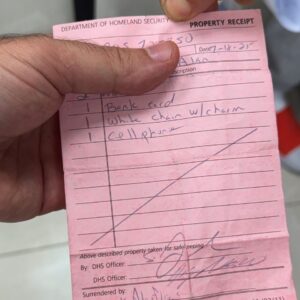
4. Thousands in Cash and Valuables Are Unaccounted For.
We heard troubling accounts of deported people arriving in Honduras without the cash, cellphones, jewelry, identification cards, and similar valuable items that they had surrendered to ICE or contractor personnel. These migrants are arriving with handwritten receipts that note the items, but with no instructions on how they might retrieve them. For each planeload, there are thousands of dollars’ worth of unreturned cash and valuables. Where are they?
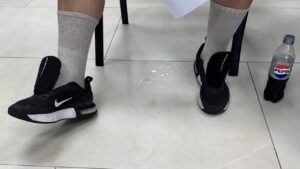
There is more to tell, and we’ll be visiting other countries on this trip. But we’re already gravely concerned by what we’ve heard.
This is happening with almost no accountability and little public knowledge. Changing that situation has to begin with finding out about it, which has become almost impossible to do from inside the US; the administration continues to restrict oversight and visibility into ICE detention. WOLA and WRC are working to uncover these harms in one of the only possible remaining ways. We will not let these abuses happen in the dark.


